Top Stories
The Man Who Predicted the Venezuelan Catastrophe in 1893
History has revealed Richter’s political and economic insights about the inevitable fate of socialist experiments to be a warning of eerie prescience.
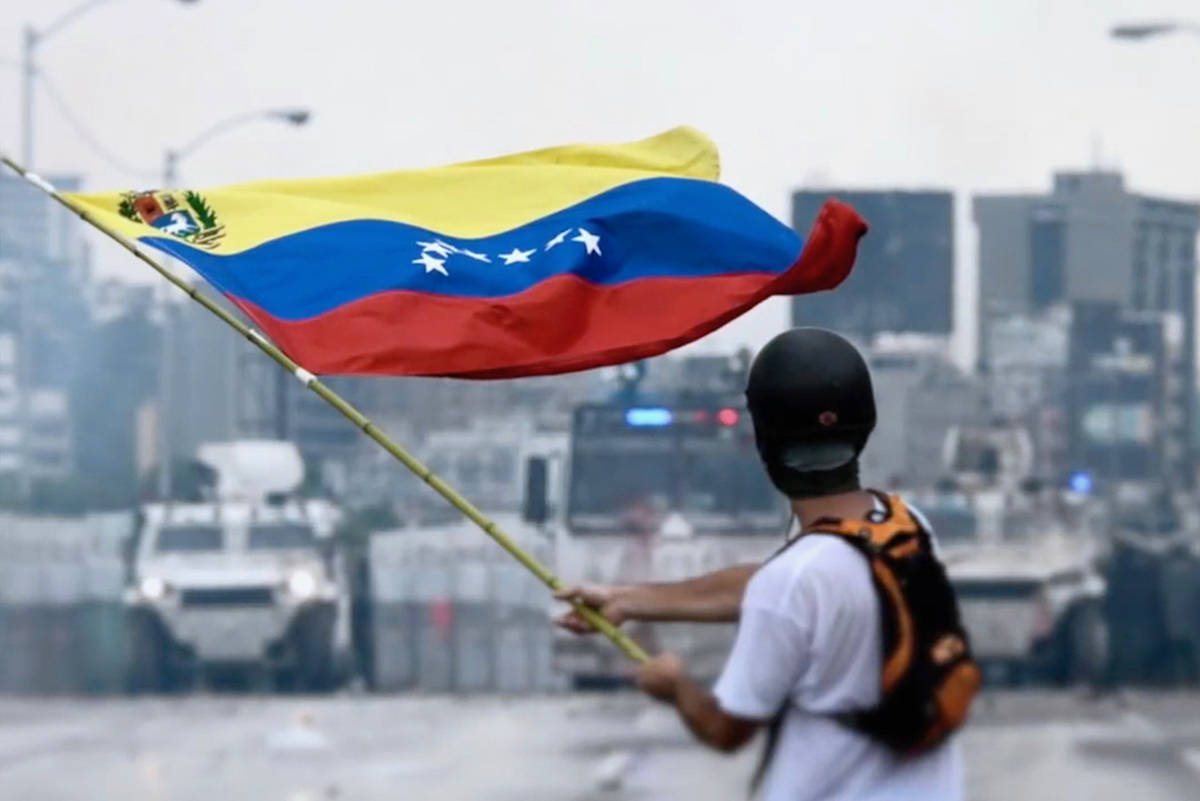
On 19 August, the Guardian reported that Venezuelans fleeing their country’s economic, political, and humanitarian crisis are being attacked by natives of neighbouring countries, who have grown weary of the relentless influx of migrants (a term that sounds increasingly euphemistic—’refugees’ is a more accurate descriptor). For nearly 20 years, Venezuela’s regime has blamed foreign actors and ‘neoliberal’ subversives for every woe and calamity that has befallen the country. But the disastrous results of the Bolivarian socialist experiment were both predictable and widely predicted—and not just by contemporary observers and analysts. They were also foretold 125 years ago by a now-obscure German politician, journalist, and author named Eugen Richter.

Richter was what we would now call a ‘classical liberal.’ He appraised socialist doctrine before an actual socialist state put theory into practice, and he found it wanting. In 1893, he turned his concerns into a dystopian novella entitled Pictures of the Socialistic Future, in which he vividly predicted what would happen if the socialists of his day were to gain control of the German economy. Narrated by a devout socialist, the novel tracks the course of events as the party and its members labor to implement their utopian vision. The narrator documents the tragic consequences of the government’s policies on his family—his wife Paula, his son Franz, and his daughter-in-law Agnes. What starts as a joyous, popular revolution soon disintegrates into a socioeconomic nightmare, and the conflicted narrator, who initially resorts to excuses, finally has to confront the real reasons for the tragedy.
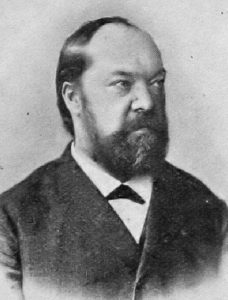
Richter’s novel lacks the literary flair of Orwell’s totalitarian allegories. But it is impressive for another reason. History has revealed Richter’s political and economic insights about the inevitable fate of socialist experiments to be a warning of eerie prescience. In what follows, I juxtapose excerpts from Richter’s bleak portrait of a socialist future with contemporary reports from Venezuela, drawn from a cross-section of media.
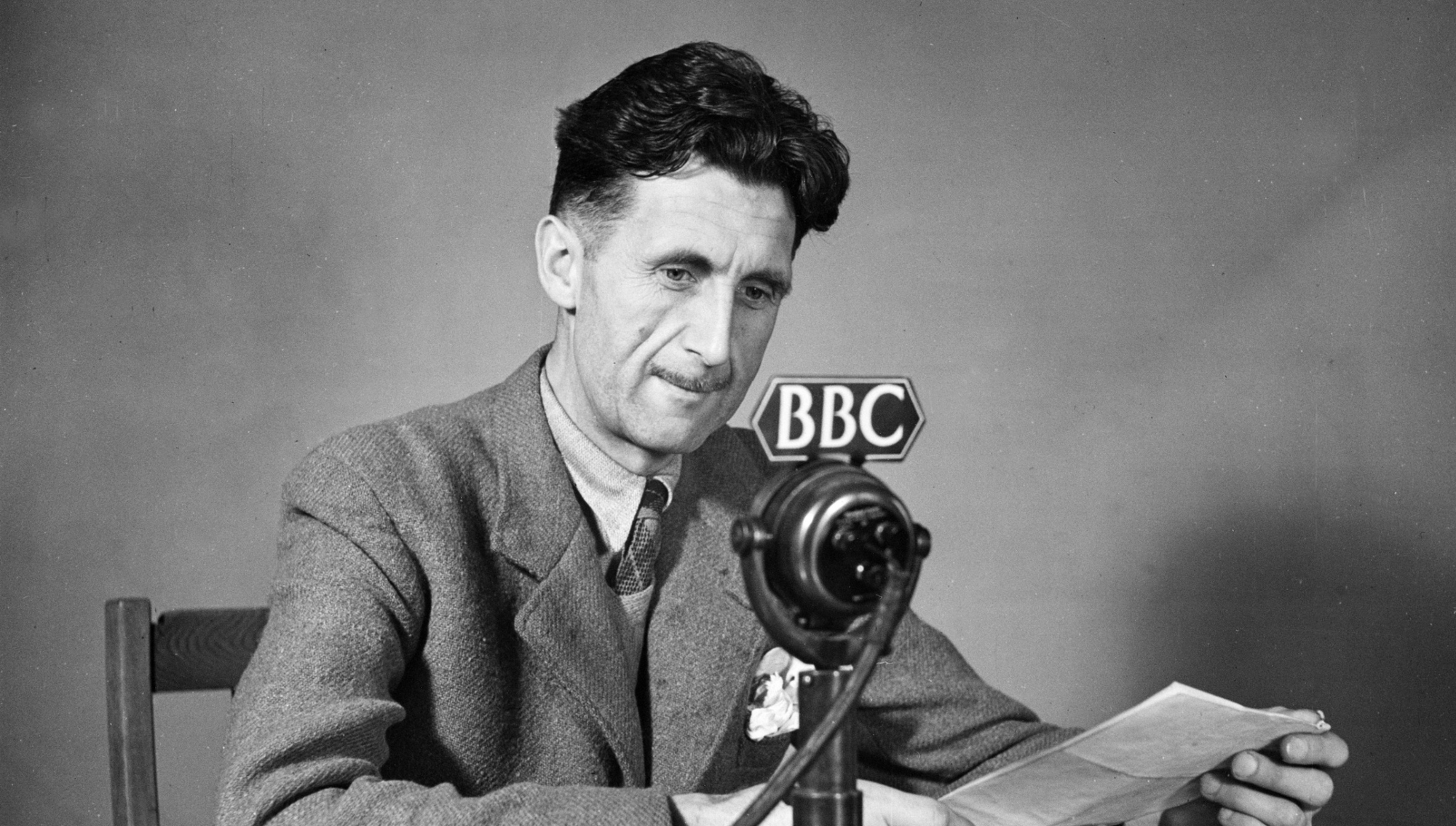
To appropriate any human tragedy with the sole purpose of scoring political points against one’s ideological opponents is deplorable. The case of Venezuela is no different. Unfortunately, some opponents of socialism have been engaging in a ghoulish and gloating triumphalism. I do not intend to echo that sentiment here. Instead, what follows is an expression of frustration and anger. The unfortunate truth is that libertarians, centrists, conservatives, and liberals have all been sounding the alarm for a long time now, but have had their warnings blithely dismissed by ideological fellow travellers, even as an oil-rich nation has been plunged into an entirely avoidable political and economic catastrophe. It is long past time for some hard lessons to be learned.
* * *
Pictures of the Socialistic Future: “None but absolutely reliable Socialists are allowed on the Onward [nationalised newspaper] … Franz will have it, that politics have had something to do with the assignment of labour.” (p. 16)
“While the opposition roundly criticized the new law when it was first introduced in October 2001, the real problems within PDVSA [Venezuelan state-owned oil and natural gas company] did not begin until Chávez decided to fire his appointment to the presidency of PDVSA, General Guaicaipuro Lameda, in February 2002 … Chávez replaced Lameda with Gaston Parra, a leftist economist and former president of the Central Bank of Venezuela. Also, he appointed five new members to PDVSA’s board of directors. Lameda, together with members of PDVSA’s upper management charged that Chávez was politicizing PDVSA by appointing individuals to the board on the basis of political loyalty, rather than merit.” The Economics, Culture, and Politics of Oil in Venezuela, venezuelanalysis.com, 30 August 2003.
“A decree has been issued against all emigration without the permission of the authorities … The main thing was to take care that they did not take money or money’s worth with them over the frontier.” (p. 51-52)
“Recent records show that 1.5 million Venezuelans have left the country since 1999. This number has only kept growing as Venezuela’s economy spirals out of control. Many Venezuelans aspire to leave the country since the highly politicized Central Bank has completely devalued the national currency, the bolivar, with its inflationary policies. But those seeking economic exile must also face capital and currency controls in order to leave in the first place. First implemented by Hugo Chávez in 2003, these measures were used to stem the capital flight caused by the 2002 oil workers’ strike. These capital controls started out as measures that targeted the rich in order to supposedly rein in their greed and their ability to move vast sums of capital abroad. History, however, has shown that regulations that start out solely targeting the rich eventually turn into all-encompassing controls that affect all social classes.” The Human Cost of Venezuela’s Capital Control Nightmare, PanAm Post, 18 February 2016.
“[W]hat Franz does not quite like … is the way they have now of spinning the work out so. In spite of sure and regular wages, they say, ‘if the job is not finished today, it will be finished tomorrow.'” (p. 56)
“Diligence and zeal are looked upon as stupidity and perversity. And indeed why should one be industrious? The most diligent comes off no better than the laziest. No one is any longer … the forger of the links of his own happiness.” (p. 57)
“A plethora of ostensibly pro-worker decrees have been passed in recent years, culminating in a 2012 labour law known as the LOTTT. The law includes a virtual ban on dismissals, a shorter working week and improved holiday and maternity benefits. In December, Mr Maduro renewed a decree, in force for the past decade, which makes it almost impossible for private firms to fire workers. Under the LOTTT, job security is virtually guaranteed after the first month. The result, employers say, has been absenteeism rates ranging from 15 percent to 40 percent of the workforce, depending on the industry and the time of year. Under these circumstances most firms are unsurprisingly reluctant to recruit. Luis Alfredo Araque, who chairs the labour commission of the main employers’ federation, Fedecámaras, says businesses are being bankrupted by unproductive workers: “I know one American company here, which is paying 250 workers to stay at home rather than come to work and cause trouble.” Labour-ministry inspectors refuse to approve dismissals, whatever the grounds, leaving many employers with no choice but to bribe workers to leave.” Labour’s Love Lost, The Economist, 25 January 2014.
“Well, Rome wasn’t built in a day. And this very spirit of selfishness which we see so much of in our workshops, what is it other than the evil inheritance left us by a state of society in which every man strove to gain an advantage over every other man? Our new schools and institutions will very soon create that ‘moral atmosphere’ in which the tree of socialism will grow and flourish.” (p. 60)
“Juan Carlos Loyo, deputy minister of the popular economy, noting that community service has been part of the cooperative creed since its beginning, asks for patience: ‘We know that we are coming from a capitalist lifestyle that is profoundly individualistic and self-centered.’ Marcela Maspero, a national coordinator of the new, Chavista UNT labor federation, acknowledges ‘the risk of converting our comrades into neo-liberal capitalists.’” Venezuela’s Cooperative Revolution, Dollars and Sense, July/August 2006
“President Hugo Chavez of Venezuela during the swearing in ceremony of his new cabinet gave a fiery speech in which he announced a series of radical measures … Other measures he outlined included that of setting up a ‘Bolivarian popular education.’ He explained that this would ‘deepen the new values and demolish the old values of individualism, capitalism, of egotism.’” Chavez Announces Radical Measures Against Capitalism, Marxist.com, 9 January 2007
“For a long time past there have been signs in all directions that something or other was wrong. When going to make purchases, you were told, only too often, that such and such an article had just run out of stock, and that a fresh supply would not come in for some little time. It now comes out, however, that this was due, not to an increase in the demand, but to a decrease in the supply.” (p. 93)
“In 2013, President of the Venezuelan government’s Instituto Nacional de Estadística (INE — National Institute of Statistics) Elias Eljuri suggested that all shortages in the country were due to Venezuelans’ eating, saying that ’95 percent of people eat three or more meals a day’ while referencing a national survey. Data provided by the Venezuelan government’s statistical office instead showed that in 2013, food consumption by Venezuelans actually decreased.” Shortages in Venezuela, Wikipedia
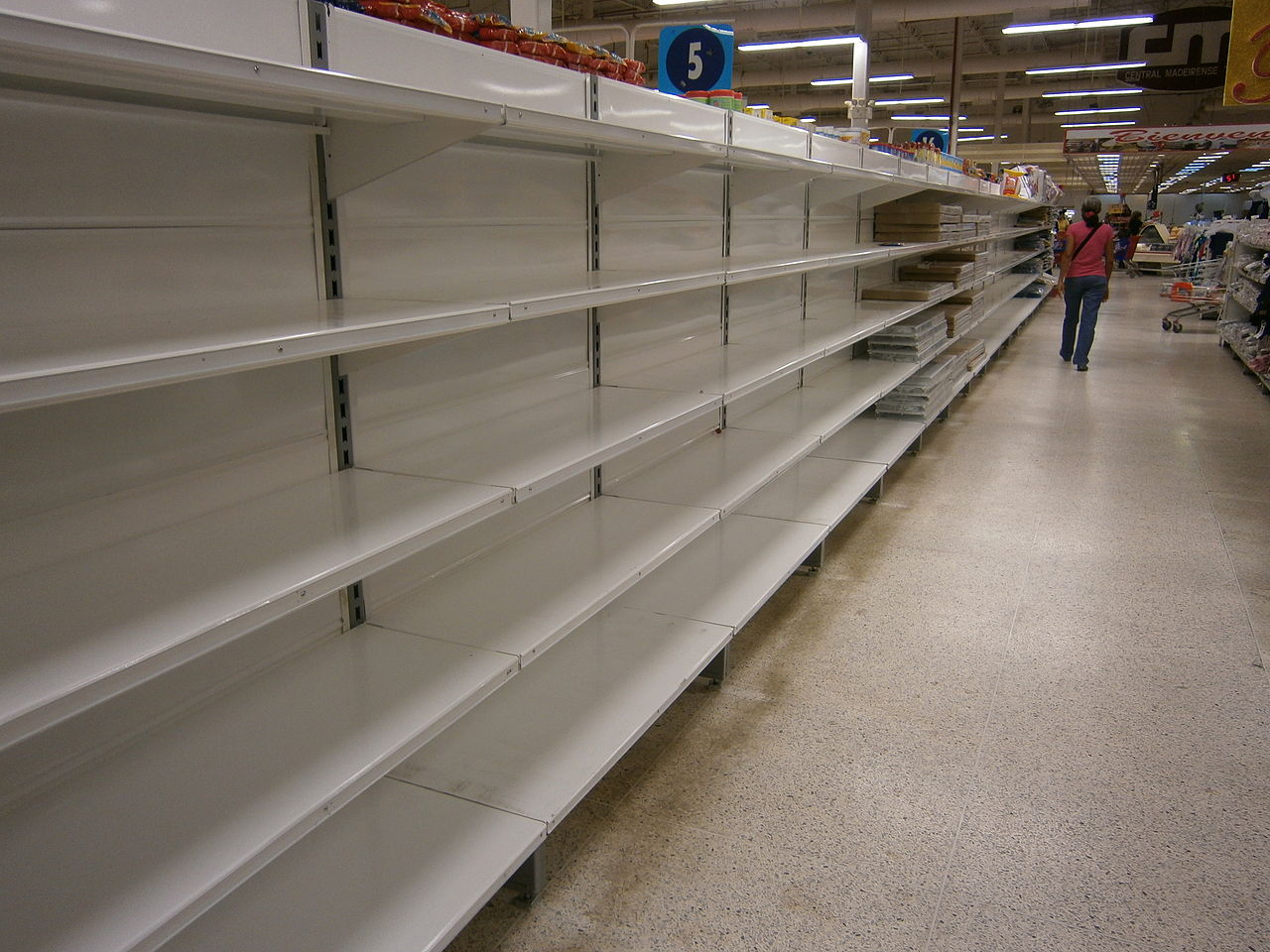
“All stores for daily consumption seem to have dwindled down to a minimum. The only stocks we have are of such things that there is little or no demand for.” (p. 95)
“With prolonged shortages of basic foods, Venezuelans have been forced to shift their diets to whatever they can find. And what they can find is not necessarily healthy. Milk, meat, and beans—the main sources of protein in the Venezuelan diet—are hard to find or sold at exorbitant prices, and many are filling up on empty carbs from pasta, rice, and the traditional arepa cornmeal cake. ‘These fill you up and make you fat but they are not nutritious,’ said nutritionist Héctor Cruces. ‘Viscera are high in fat and low on protein.’ A study revealed last month by Venezuela’s top three universities showed that 12 percent of those polled said they were eating less than three meals a day ‘And those who do have access to three meals have seen a deterioration in the quality of their diet,’ said Marianella Herrera-Cuenca, of the Bengoa Foundation, an NGO dedicated to promoting nutrition. Children and the elderly are hardest hit. Investigators from the Bengoa Foundation said a sampling of 4,000 school-aged children showed 30 percent were malnourished and that school absences were on the rise.” Food Shortages Take Toll on Venezuelans’ Diet, the Guardian, 24 May 2016
“Venezuelans have been living with shortages of food and essential items for nearly three years as the oil-dependent economy began to buckle. And patience is wearing thin. The Venezuelan Observatory of Social Conflict registered 2,138 protests between January and April, most of them spontaneous manifestations of anger or frustration. Incidents of looting have nearly quadrupled in the same time. ‘We are like a bomb going tick-tock, tick-tock,’ said Zenovia Villegas, a 54-year-old housewife who waited in line at a Guarenas supermarket since the early hours of Thursday only to be told at 3pm that the store would not be opening its doors that day. Dejected, she went home empty-handed.” We Are Like a Bomb: Food Riots Show Venezuela Crisis Has Gone Beyond Politics, the Guardian, 20 May 2016
“Even the most indispensable repairs are constantly postponed. No longer is there a syllable dropped about alterations and improvements anywhere, about the renewal of machinery and stores; about the building of new mills … or about the construction of new railways.” (p. 94)
“China Railway Group’s railway project in Venezuela is suffering delays because the Venezuelan government is unable to pay the entire US$7.5 billion contract. When the deal was announced in August 2009, it was China’s largest overseas rail construction project and the Latin American nation’s largest non-oil contract. Venezuela is a major oil exporter to China, which pays for its imports partly through infrastructure projects. The Venezuelan government owes China Railway US$400 million to US$500 million, said Li Changjin, the chairman of China Railway, which is listed in Hong Kong and Shanghai.” China Railway Group’s Project in Venezuela Hits a Snag, South China Morning Post, 11 April 2013
“Venezuela was plunged into darkness on Tuesday when the country’s main power distribution network failed, depriving 70 percent of the country of electricity and creating traffic chaos in much of Caracas. The electrical energy minister, Jesse Chacón, appeared on state TV to explain that the failure was in the ‘backbone’ that carries electricity from the Bajo Caroni region, where 60 percent of Venezuela’s power is generated. President Nicolás Maduro said on Tuesday night that 14 of 23 states had lost power for much of the day and blamed ‘sabotage,’ suggesting opposition groups were responsible. He said service had been progressively restored with some exceptions, including the oil-producing state of Zulia. Maduro blamed ‘the extreme rightwing,’ as he has in the past, via Twitter. Power was restored in Caracas by nightfall. Despite possessing the world’s largest proven oil reserves, Venezuela has been plagued in recent years by worsening power outages, but they have rarely reached metropolitan Caracas, home to more than one-sixth of the country’s 28 million people … In an evening broadcast on state TV, he claimed the outage was ‘part of a low-level war’ on what his government refers to as ‘the revolution’ begun by the late president Hugo Chávez, Maduro’s political mentor but provided no evidence to support his accusations of sabotage.” Power Cut Paralyses Venezuela, the Guardian, 4 September 2013
“The government … went on the assumption that [the nation’s productivity] would remain at least the same, and would not diminish … A short time, however, sufficed to show that the nation’s productiveness sank down to one-third of what it had formerly been…” (p. 96)
“According to economist Ángel Alayón, ‘the Venezuelan government has direct control over food distribution in Venezuela’ and that the movement of all food, even among private companies, is controlled by the government. Alayón states that the problem is not distribution, however, but production since ‘nobody can distribute what is not produced.’ Expropriations performed by the Venezuelan government resulted in a drop in production in Venezuela. According to Miguel Angel Santos, a researcher at the Kennedy School of Government of Harvard University, as a result of expropriations of private means of production since 2004, ‘production was destroyed,’ while a ‘wave of consumption based on imports’ occurred when Venezuela had abundant oil money.” Shortages in Venezuela, Wikipedia
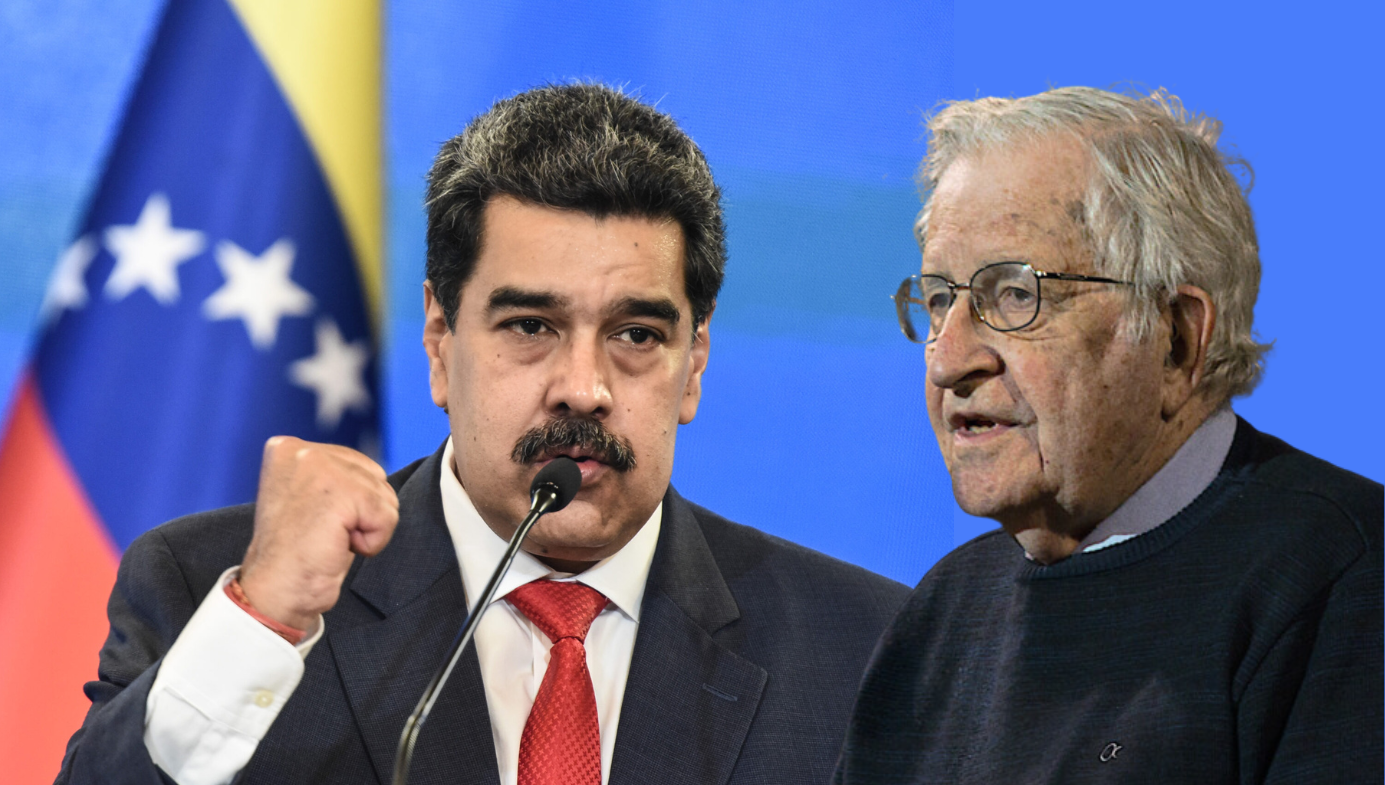
“The government party shows considerable confidence … it calls upon all other parties, as true patriots, to forget their differences, and to unite and form a grand Party of Order, in opposition to the party of negation and demolition, which was stealthily increasing and which, under the enticing name of a Party of Freedom, sought to ingratiate itself with the nation.” (p. 84)
“The Chancellor — The fact of a considerable diminution in productive values having taken place in our country, a diminution so great that these values are now only one-third of what they were before the great Revolution, is a fact that it ill becomes us either to be-laugh or be-moan but which we must all endeavour to grasp and comprehend. Prominent amongst the causes of that retrogression are the opponents of our socialistic system.” (p. 96)
“Our export trade has fallen off to an alarming extent, partly owing to … the aversion which the bourgeois nations show to our manufacturing system.” (p.102)
“They try to appease the ill-humours of their populations by directing attention to foreign affairs.” (p. 121)
“‘We must take all measures to recover productive capacity, which is being paralysed by the bourgeoisie,’ Mr Maduro told a rally in Caracas. ‘Anyone who wants to halt [production] to sabotage the country should get out, and those who do must be handcuffed and sent to the PGV [Venezuelan General Penitentiary],’ he said. ‘We’re going to tell imperialism and the international Right that the people are present, with their farm instruments in one hand and a gun in the other … to defend this sacred land,’ he added.” Venezuela Crisis: Maduro Threatens Seizure of Closed Factories, BBC, 15 May 2016
“On Wednesday, more than 1,000 police fanned out around the western city of Maracaibo after a night of riots. More than 100 people were arrested there for looting that damaged dozens of businesses, according to local governor Francisco Arias, who supports the Maduro government. Venezuela is among the world’s most violent countries, and crime generally spikes here when the lights go out. Maduro condemned the night of protests, and said his political enemies were trying to sow chaos and sabotage him. ‘The crazy right wing doesn’t understand that in hard times, a family has to band together,’ he said. ‘They’re trying to create a violent situation.’” Maduro Blames the ‘Crazy Right’ for Riots Sparked by Daily Several Hours Blackouts, Merco Press, 28 April 2016
“Venezuelan President Nicolas Maduro declared a 60-day state of emergency on Friday due to what he called plots from within the OPEC country and from the US to topple his leftist government. Maduro did not provide details of the measure. A previous state of emergency, implemented in states near the Colombian border last year, suspended constitutional guarantees in those areas, except for guarantees relating to human rights.” Venezuela President Declares 60-Day State of Emergency, Blaming US for Instability, the Guardian, 14 May 2016
“The fact that we, on our part, now require no more silk … is but a meagre compensation for the loss of our export trade, amounting to many millions.” (p. 81)
“From month to month, the deficit seems to grow greater and greater instead of less, in spite of all attempts to grapple with the difficulty. Even the stocks of raw material and auxiliary material begin to show signs of not being long able to keep the various works fully going.” (p. 95)
“Chavez’s so-called back-to-the-land movement calls for the redistribution of land —increasingly properties that the state has taken over in what officials term a ‘rescue’ or ‘recuperation.’ The objective is to ensure ‘food sovereignty,’ thereby reducing dependence on imports. But nearly five years after the measures were implemented nationwide, farmers and agriculture experts say, Venezuela is not only far from self-sufficient in food, but also more dependent than ever on foreign countries. Food imports rose to $7.5 billion last year, a sixfold increase since Chávez took power a decade ago … In most cases, the so-called reforms have failed to spur production. Felicia Escobar, a lawyer and consultant on land issues who used to work for the Agriculture Ministry, said land redistribution has failed across the continent because farmers are not given incentives to produce and governments have not provided adequate credit or technical assistance. She said that in Venezuela, the new farmers are not even given title to the lands they occupy. In some cases, they are grouped into communes and expected to work as a unit, with little stake in their plots. ‘That is socialism,’ she said. ‘It did not work before, and it does not work now.'” In Venezuela, Land ‘Rescue’ Hopes Unmet, Washington Post, 20 June 2009
“Franz has proved to be right in his forecast of the results of the elections. In his last letter he expressed his belief that, in a community in which there was no longer any personal or commercial freedom, even the freest form of government would fail to restore any political independence. He considered that those subjects who are so dependent upon the Government, even in the most ordinary affairs of life, as is now the case with us, would only in very rare instances have the courage to vote, no matter how secret that voting might be, in opposition to the known wishes of those in power. The right of voting, Franz wrote, could have no more serious significance in our socialistic State of society than such a right has for soldiers in barracks, or for prisoners in gaol. The result of the elections shows that the Government party, in spite of all the widespread discontent there is, has secured two-thirds of the votes recorded.” (p. 91)
“Electoral authorities in Venezuela say the governing Socialist Party has won 17 of 23 state governorships in a crushing victory. President Nicolás Maduro hailed it as a victory for Chavismo, his party’s brand of socialism named after former president Hugo Chávez. But opposition leaders alleged fraud. The Democratic Unity Roundtable coalition has refused to recognise the result and demanded a complete audit, campaign director Gerardo Blyde said. He said that ‘neither Venezuelans nor the world will swallow this fiction’ … A poll conducted by private firm Datanalisis before the election suggested 45 percent of voters intended to vote for opposition candidates and 21 percent for the governing socialist party candidates.” Venezuela Socialists Win Governor Seats Amid Fraud Claims, BBC, 16 October 2017
“Venezuela’s President, Nicolás Maduro, says the country’s main opposition parties are banned from taking part in next year’s presidential election. He said only parties which took part in Sunday’s mayoral polls would be able to contest the presidency. Leaders from the Justice First, Popular Will and Democratic Action parties boycotted the vote because they said the electoral system was biased. President Maduro insists the Venezuelan system is entirely trustworthy.”Venezuela Opposition Banned from Running in 2018 Election, BBC, 11 December 2017
“The number of embezzlements is now seven times greater than it used to be. Officials of all grades dispose of goods belonging to the State in consideration of some private favour or service rendered to them personally; or else they neglect, in the due performance of their duties as salesmen, to extract a coupon of the right value from the money certificates of buyers, in exchange for goods supplied.” (p. 71)
“The UIAF [Colombia’s government body that looks into suspicious money movements and sends them for investigation] statement also accused Venezuela of using food and humanitarian aid as a weapon for social control and said there was ‘large-scale theft’ of funds from the Venezuelan food aid program (CLAP). Venezuelan army officials and others tasked with distributing food amid widespread shortages have long been suspected of stealing or misappropriating government-related funds…” Colombia, U.S., Mexico, Panama Seek to Combat Venezuelan Corruption, Reuters, 12 July 2018
“Most sectors of the Venezuelan economy suffer from endemic corruption, due to the highly politicized and ineffective judiciary that is inefficient in cracking down on corruption and impunity. The Venezuelan legal framework criminalizes several corruption offenses, including extortion, passive and active bribery and abuse of office. However, the legal framework does not include the bribery of foreign officials. Enforcement of anti-corruption legislation in the country is very weak, and government officials do engage in corrupt practices with impunity. Bribery and facilitation payments are widespread. Gifts given in return for an undue advantage are illegal under Venezuelan law; however, the practice is recurrent in most sectors.” Venezuela Corruption Report, Business Anti-Corruption Portal, May 2016
“From all parts of the country, reports are constantly coming in, detailing violent collisions between civilians and the troops which were sent out to establish Socialism.” (p. 86)
“Oil-rich Venezuela has been rocked by two months of deadly protests, with at least 41 people killed since a wave of demonstrations against the leftist government of Nicolas Maduro broke out in early February.” In Pictures: Renewed Rioting in Venezuelan Capital, the Daily Telegraph
” series of anti-government protests have persisted since February, motivated largely by the leftwing government’s heavy handed dealings with the political opposition, out of control crime, and the Nicolás Maduro administration’s economic policies, which have resulted in shortages of food staples and basic items like toilet paper. The protests have led to 44 deaths and more than 800 injuries, according to La Opinión, including both demonstrators and government supporters.” UN Condemns Violence in Venezuela After Government Breaks Up Protest, the Huffington Post, 12 May 2014
“Venezuela has deployed soldiers to almost 100 food markets in efforts to counter an ‘economic war’ it says is being waged against it. President Nicolás Maduro ordered the measure, arguing that sellers were charging over the odds for price-controlled items. Venezuela has the highest inflation in the world and there are severe shortages of basic food items. Many Venezuelans report going hungry as they struggle to feed themselves.” Venezuela Deploys Soldiers to Markets to Check Prices, 21 June 2018
* * *
The conclusion here is, I believe, unassailable. Though an isolated parallel would be unremarkable, the extent and accuracy of Richter’s predictions about the trajectory of a socialist economy demand the attention of all intellectually honest observers. The grave economic and social problems we find in both fact and fiction are not merely coincidental—they are innate and native to socialist doctrine. Decades after Richter, libertarian thinkers like Ludwig von Mises and Friedrich von Hayek would build on the tradition to which he had belonged, and sharpen the economic case against socialism. And, as the century wore on, and the evidence of socialist doctrine became manifest in a growing list of corrupt, oppressive, and impoverished nations, public choice theorists elaborated on that critique. The result has been the construction of a scholarly, theoretical indictments of socialism supported by real world failures that, regrettably, are more often than not ignored or strawmanned by the radical Left.
And so I urge socialists—both revolutionary and democratic—and leftists more generally to at last take this article as a signpost to the liberal tradition of critique. I encourage them to at least entertain the possibility that the long list of failed twentieth century socialist states were not simply socialist ‘in name only,’ or the ‘victims of circumstance,’ or co-opted by ‘reactionary’ or ‘counter-revolutionary’ elements— they were the inevitable and logical consequence of immiserating policies that trade short term gains to the poor for long term disaster.






